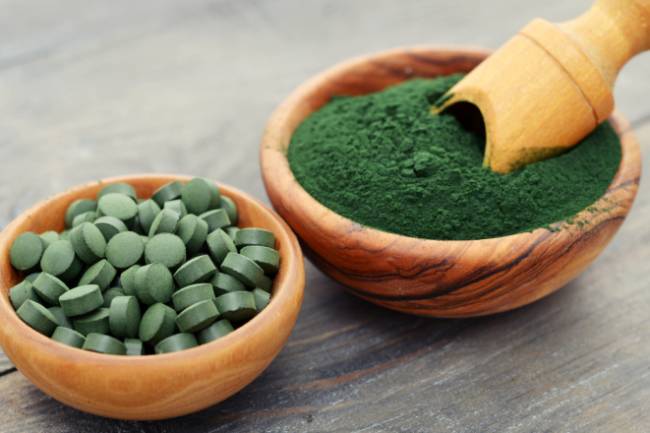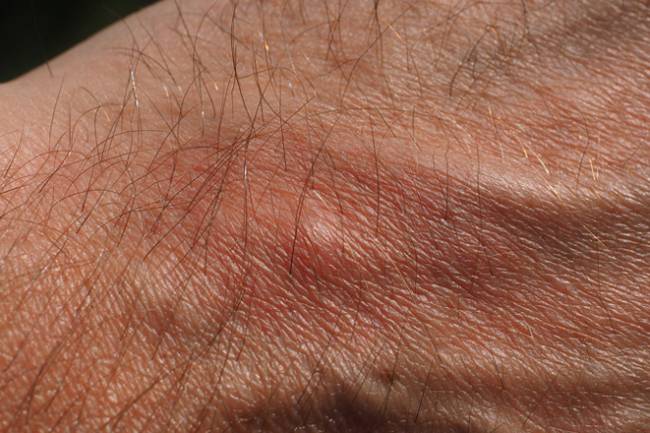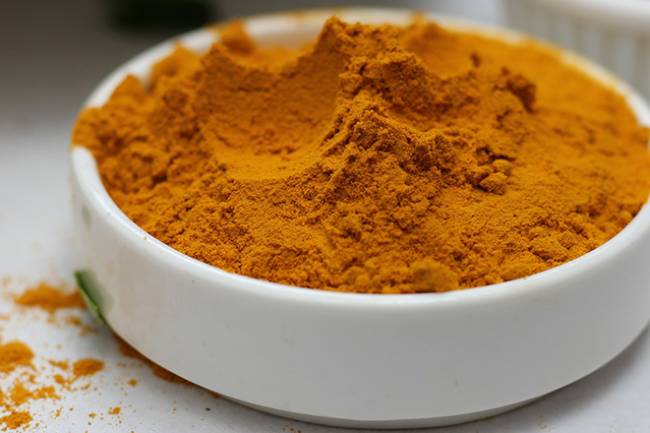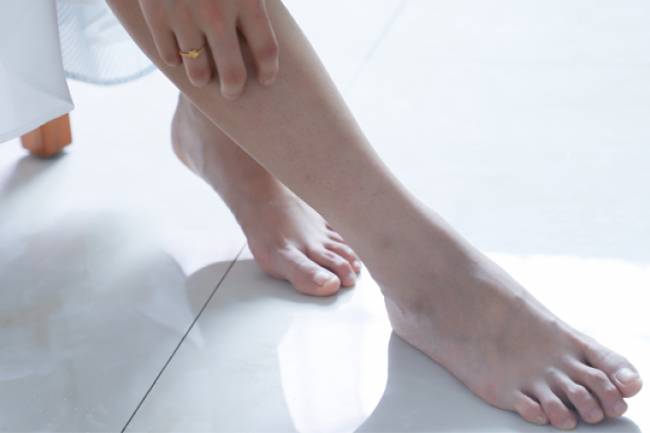How Vitamin B Can Help Support Healthy Skin

Vitamin B has long been popular amongst individuals looking for healthy, vibrant skin. What you might not realise, however, is that there are eight different B vitamins, each having varying effects.
The question then becomes – what benefit does vitamin B offer your skin, which B vitamins are most beneficial and how should you be using them?
Understanding the Vitamin B Complex
Let's start off by briefly outlining the different nutrients that are considered B vitamins before we move on to the actions of each. The following are all lumped together under the mantle of “vitamin B”...
- Vitamin B1 - also known as thiamine
- Vitamin B2 - also known as riboflavin
- Vitamin B3 - also known as niacin or nicotinic acid
- Vitamin B5 - also known as pantothenic acid
- Vitamin B6 - also known as pyridoxine
- Vitamin B7 - also known as biotin
- Vitamin B9 - also known as folate
- Vitamin B12 - actually a further group of chemicals known as cobalamins
As you can see there are a whole range of different nutrients that can be classed as “vitamin B”. Interestingly, some of them have a far greater impact on your skin than others - but which ones?
Vitamin B for Skin: What Really Matters?
Now you know all the different types of vitamin B, let's look at which ones offer benefits for your skin…
Vitamin B1 for Skin
In terms of your skin, the primary benefit of suitable B1 in your diet is that it assists in repairing any damage that occurs.
Scientists looked at two groups of participants in a scientific study; one of which was provided with a normal diet, while the other received a diet specifically designed to cause vitamin B1 deficiency. Thereafter, the speed of wound healing was recorded in both groups, with the experts concluding that “the changes observed in this study demonstrate a definite involvement of thiamine [vitamin B1] in wound repair and scar development.”
In other words, if you want to ensure you recover quickly from any cuts or grazes to your skin you would be well advised to ensure that you're getting enough vitamin B1. But how much is “enough”? At present, the daily recommended intake of vitamin B1 for adults is 1.1mg, which can be ingested through the diet or in supplement form.
Vitamin B2 for Skin
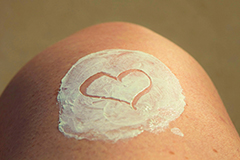 Vitamin B2 (riboflavin) is crucial for the overall structure and quality of your skin. Scientists have found, for example, that people deliberately fed on a diet deficient in vitamin B2 experience their lips slowly losing colour. Soon afterwards they begin to develop lesions, particularly in the corners of the mouth.
Vitamin B2 (riboflavin) is crucial for the overall structure and quality of your skin. Scientists have found, for example, that people deliberately fed on a diet deficient in vitamin B2 experience their lips slowly losing colour. Soon afterwards they begin to develop lesions, particularly in the corners of the mouth.
This would be unpleasant enough but other studies have revealed far more about the impact of riboflavin on skin condition. It has been noted that riboflavin-deficient individuals develop “profound macroscopic and microscopic architectural disorganization of the skin”. In other words, the evidence seems to suggest that vitamin B2 has an important role in the actual structure of the skin.
Vitamin B2 also helps the body to absorb and utilise zinc from the diet, which is a crucial ingredient for maintaining the health of skin, together with your hair and nails. Lastly, it is worth noting that some laboratory studies have noted that riboflavin deficiency is linked to the growth of skin tumours under certain circumstances, so you'll definitely want to ensure that you're getting enough of this vitamin whether your focus is healthy skin or not.
Vitamin B3 for Skin
Possibly one of the best-known B vitamins for skin is niacin - or vitamin B3. A lack of suitable vitamin B3 can lead to a thoroughly unpleasant condition known as “pellagra” - from the Italian “pelle agra” meaning “rough skin”. Pellagra is defined by what experts call “the three D's” - dermatitis, diarrhoea and dementia. Some authorities expand this to a fourth symptom too - death - as it is the most common eventual outcome.
In terms of the skin, it has been described as producing “distinct cutaneous manifestations”, generally arising in response to exposure to sunlight. As a result, hands and faces tend to be most commonly affected. Fortunately, pellagra is uncommon among those of us consuming a balanced, healthy diet. Not only can vitamin B3 be found in a range of foods, but there is also some evidence to suggest that the body can actually produce niacin from amino acids present in the body.
For this reason, low protein diets can make pellagra far more likely. Furthermore, situations in which dietary imbalances occur - such as in cases of alcoholism - also make the condition more likely. Whilst pellagra may itself be quite uncommon in the West, the appearance of this condition in cases of deficiency really helps to underline the importance of vitamin B3 for healthy skin.
A broad study by scientists of how vitamin B3 impacts the skin highlights “its apparent role as an anti-acne active”, as well as helping to moderate suppression of the immune system in response to intense sunlight exposure (“photoimmunesuppression”).
Elsewhere, researchers have pointed out that a topical application of vitamin B3 helps to stabilize the epithelial barrier, reducing moisture loss, increasing smoothness and improving the signs of wrinkles.
Lastly, studies have found that vitamin B3 may be particularly beneficial for ageing skin. A group of 50 mature women were encouraged to use a topical vitamin B3 cream on half their face, while a control cream was used on the other half. After 12 weeks of twice-daily treatment it was found that statistically-significant improvements were seen in skin elasticity, fine lines and wrinkles, blotchiness and discolouration on the side receiving B3 treatment.
Vitamin B5 for Skin
Vitamin B5, also known as “pantothenic acid”, plays a fascinating role in keeping your skin in top condition. Crucially, vitamin B5 is used to make a substance known as ‘coenzyme A' which has far-reaching impacts on the body.
Of interest to the skin, vitamin B5 has an impact both on absorbing energy from your food, and in the production of red blood cells that help to transport nutrients around the body. Cases of deficiency can lead to feelings of tiredness, anaemia or reductions in overall signs of health, such as skin and hair condition.
Lastly there is evidence that pantothenic acid plays a role in moisture control, aiding the process that prevents it from escaping into the environment, leading to dry, itchy skin.
Vitamin B6 for Skin
 Unlike many of the other B vitamins covered here, the effect of vitamin B6 on the skin is far smaller. Generally the most important roles of vitamin B6 in the body are to assist with the storage and breakdown of glucose in the body, ensuring that you have enough energy for everyday activity.
Unlike many of the other B vitamins covered here, the effect of vitamin B6 on the skin is far smaller. Generally the most important roles of vitamin B6 in the body are to assist with the storage and breakdown of glucose in the body, ensuring that you have enough energy for everyday activity.
While this may have an indirect effect on the skin cells - ensuring they are suitably nourished - there is little convincing evidence that taking more vitamin B6 will make any noticeable difference to the appearance of your skin.
Vitamin B7 for Skin
Vitamin B7, better known as “biotin”, has long been popular as a supplement to support healthy hair. Alongside this, however, there is evidence that it is also important for healthy, glowing skin.
Rather like vitamin B1 it seems that a deficiency in this nutrient leads to unpleasant skin conditions, known for being “scaly” in appearance and often discoloured. But why is this?
Research tells us that one of the many roles vitamin B7 has in the body is that of “lipogenesis” - in other words the creation of fatty acids that, in turn, maintain the health of cells, including the hair and skin.
Vitamin B9 for Skin
Folate is a crucial nutrient for pregnant women, as a deficiency can result in neural tube deficiencies. That said, vitamin B9 seems to have no direct impact on the appearance of the skin.
Vitamin B12 for Skin
Vitamin B12 is a particularly interesting vitamin when it comes to the skin. The reason is that unlike many of the other nutrients outlined here, it has a key role to play in skin pigmentation. Deficiencies in this B vitamin have been found to lead to unusual skin colouring often known to experts as “hyperpigmentation”. It is also worth noting that this B vitamin has similarly important effects on the hair, and a lack of vitamin B12 can result in hair changing colour or losing condition.
Studies have also found that an increase in vitamin B12 may help to ease many of the symptoms associated with dermatitis (eczema). In one experiment, 49 people suffering from dermatitis used a vitamin B12 cream on one side of their body and a placebo cream on the other half. The creams were applied twice-daily for a period of eight weeks, at which point comparisons were made.
Both the participants themselves and the scientists running the study were asked to rate the improvement in their condition. The results showed that the site receiving vitamin B12 supplementation was most commonly awarded a rating of either “good” or “very good”. In contrast the placebo-treated areas were rated as either showing “moderate” or “poor” improvement.
Other researchers have linked unsuitable levels of this B vitamin to other conditions including acne, vitiligo and mouth ulcers. As a result, we would all be well advised to ensure we're getting enough of this vitamin, though this may be particularly relevant for individuals looking for the healthiest skin possible.
Vitamin B for Skin: What You Need to Know
 Now that we have covered each of the various B vitamins in turn, let's bring all this information together into a few tidy conclusions. As should be clear by now, many B vitamins have a powerful impact on the skin, though some definitely seem to have more impact than others.
Now that we have covered each of the various B vitamins in turn, let's bring all this information together into a few tidy conclusions. As should be clear by now, many B vitamins have a powerful impact on the skin, though some definitely seem to have more impact than others.
The research carried out to date suggests that four B vitamins are of particular relevance; vitamins B2, B3, B7 and B12. The others, while all having their own crucial roles within the body, are of less relevance for people seeking information on vitamin B for skin.
That said, we should all try to ensure that we're getting enough of these vitamins. When discussing B vitamins it is important to point out that these are all “water soluble” vitamins. What does this mean in practice?
Water-soluble vitamins are notable because they are not stored in the body in any noticeable manner. This therefore has two subsequent impacts. Firstly it is difficult to “overdose” on B vitamins as they are not stored in the body; instead they are passed via the urine. The fact that these vitamins aren't stored in the body also means that we need a regular, high-quality supply if we are to remain in optimal health.
The first step in ensuring you are getting enough vitamin B for radiant skin is therefore to eat a healthy, nutritious diet rich in natural foods like leafy vegetables, seeds, nuts and lean meat. If you are in any doubt that you're getting enough vitamin B it is surprisingly easy to “top up” your intake with a complete vitamin B complex supplement like this one. In this way you can be sure you're meeting your body's daily needs. Current recommended minimum daily intakes of B vitamins are as follows:
- Vitamin B1 - 1.1mg per day for adults
- Vitamin B2 – 1.4mg per day for adults
- Vitamin B3 – 16mg per day for adults
- Vitamin B5 – 6mg per day for adults
- Vitamin B6 – 1.4mg per day for adults
- Vitamin B7 – 50mcg per day for adults
- Vitamin B9 – 200mcg per day for adults
- Vitamin B12 – 2.5mcg per day for adults
Alongside this dietary intake, however, there is evidence to suggest that topical skin creams containing B vitamins may also prove to be beneficial. This is especially so in the case of vitamin B3, which an increasing number of creams now include. Consider using a vitamin B-enriched skin cream twice a day to maintain the best possible skin condition.
As a final note, it is important to appreciate that vitamin B is not the only nutrient that has a direct impact on your skin. If you are suffering from dry, discoloured or sore skin then you may also wish to consider your diet as a whole.
Supplements like fish oils and aloe vera can also offer further benefits for improved skin condition, so try to consider your skin from a holistic, natural perspective rather than focusing on just one nutrient alone. In doing so you'll ensure that your body has access to all the key nutrients necessary, which can not only make your skin look better but also improve your health and wellbeing in a range of other ways too.

Sources:
https://jamanetwork.com/journals/jamadermatology/article-abstract/547429
https://link.springer.com/article/10.1007/s40257-014-0107-3
http://onlinelibrary.wiley.com/doi/10.1111/j.1365-2133.2004.05866.x/full
http://www.cfp.ca/content/54/4/529.short
https://link.springer.com/chapter/10.1007/978-94-007-2199-9_10
http://europepmc.org/abstract/med/1764357
http://www.tandfonline.com/doi/abs/10.1080/09546630212345674
https://www.jstage.jst.go.jp/article/jphs/115/2/115_10224SC/_article/-char/ja/
https://link.springer.com/article/10.2165/00128071-200203060-00005
http://europepmc.org/abstract/med/22256624
http://onlinelibrary.wiley.com/doi/10.1111/ajd.12163/full
http://onlinelibrary.wiley.com/doi/10.1111/j.1524-4725.2005.31732/full
https://www.sciencedirect.com/science/article/pii/S0163834308000741
http://onlinelibrary.wiley.com/doi/10.1046/j.1365-4362.2002.01551.x/full
http://onlinelibrary.wiley.com/doi/10.1111/j.1473-2130.2004.00115.x/full
https://www.researchgate.net/profile/Paul_Matts/publication/286270242_A_Review_of_the_range_of_effects_of_niacinamide_in_human_skin/links/57601eef08ae2b8d20eb27ba.pdf
http://www.jstor.org/stable/4582747?seq=1#page_scan_tab_contents
http://onlinelibrary.wiley.com/doi/10.1002/1097-0142(197012)26:6%3C1221::AID-CNCR2820260607%3E3.0.CO;2-I/full
http://europepmc.org/abstract/med/6120245

 Nicole
Nicole 